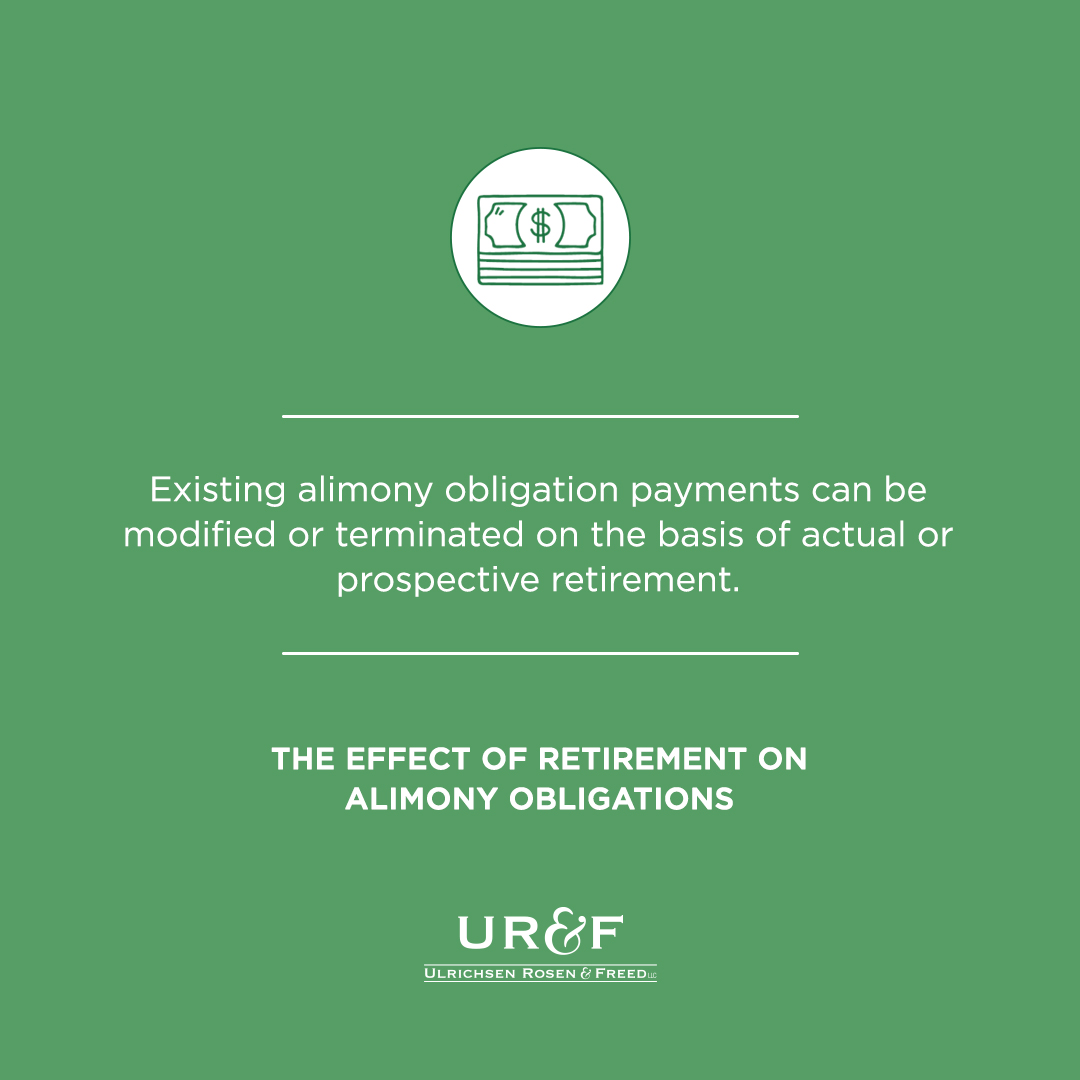The Effect of Retirement on Alimony Obligations
Existing alimony obligation payments can be modified or terminated on the basis of actual or prospective retirement. However, the standard a court will use to evaluate the request for modification is is dependent on when the final alimony award was entered.
On September 10, 2014, the New Jersey Legislature amended the alimony statute, N.J.S.A. 2A:34-23, to shed light on the circumstances under which a person’s alimony obligation can be modified or terminated on the basis of actual or prospective retirement.
For final alimony awards entered after September 10, 2014, there is a rebuttable presumption that an obligor’s alimony obligation will end upon attaining full retirement age. The burden then shifts to the obligee to demonstrate why the obligor’s alimony obligation should continue. It is important to note that the presumption that an obligor’s alimony obligation should end upon retirement is a rebuttable presumption. The rebuttable presumption can be overcome if the Court, upon consideration of the following factors set forth in the alimony statute, determines that alimony should continue:
The ages of the parties at the time of the application for retirement;
- The ages of the parties at the time of the marriage or civil union and their ages at the time of entry of the alimony award;
- The degree and duration of the economic dependency of the recipient upon the payor during the marriage or civil union;
- Whether the recipient has foregone or relinquished or otherwise sacrificed claims, rights or property in exchange for a more substantial or longer alimony award;
- The duration or amount of alimony already paid;
- The health of the parties at the time of the retirement application;
- Assets of the parties at the time of the retirement applications;
- Whether the recipient has reached full retirement age as defined in this section;
- Sources of income, both earned and unearned, of the parties;
- The ability of the recipient to have saved adequately for retirement; and
- Any other factors that the court may deem relevant.
N.J.S.A. 2A: 34-23(j)(1)
For final alimony awards entered before September 10, 2014, the obligor “reaching full retirement age… [is] deemed a good faith retirement age.” N.J.S.A 2A:34-23(j)(1). However, the burden of proof lies on the obligor to establish, by a preponderance of evidence, that the modification or termination of the alimony obligation is appropriate. In determining the same, the Court must consider, in addition to the obligee’s ability to have saved adequately for retirement, the following factors enumerated in the statute:
- The age and health of the parties at the time of the application;
- The obligor’s field of employment and the generally accepted age of retirement for those in that field;
- The age when the obligor becomes eligible for retirement at the obligor’s place of employment, including mandatory retirement dates or the dates upon which continued employment would no longer increase retirement benefits;
- The obligor’s motives in retiring, including any pressures to retire applied by the obligor’s employer or incentive plans offered by the obligor’s employer;
- The reasonable expectations of the parties regarding retirement during the marriage or civil union and at the time of the divorce or dissolution;
- The ability of the obligor to maintain support payments following retirement, including whether the obligor will continue to be employed part-time or work reduced hours;
- The obligee’s level of financial independence and the financial impact of the obligor’s retirement upon the obligee; and
- Any other relevant factors affecting the parties’ respective financial positions.
N.J.S.A. 2A:34-23(j)(3)
In instances where the obligor seeks to retire prior to reaching full retirement age, the obligor has the “burden of demonstrating by a preponderance of evidence that the prospective or actual retirement is reasonable and made in good faith.” N.J.S.A. 2A:34-23(j)(2). The Court must consider the same factors under N.J.S.A 2A:34-23(j)(3) in order to determine whether the obligor has satisfied the burden of proof.
In all of the above circumstances, a full retirement age is defined as “the age at which a person is eligible to receive full retirement for full Social Security retirement benefits under section 416 of the federal Social Security Act.” Landers v. Landers, 444 N.J. Super. 315, 322 (App. Div. 2016) citing 42 U.S.C. § 416.
For questions regarding modifying alimony obligations, retirement or any other family law related issue, please contact the attorneys of Ulrichsen Rosen & Freed LLC. Our firm is focused exclusively on the practice of family law and serves clients throughout New Jersey including clients residing in Mercer County, Somerset County, Hunterdon County, Burlington County and Middlesex County.


